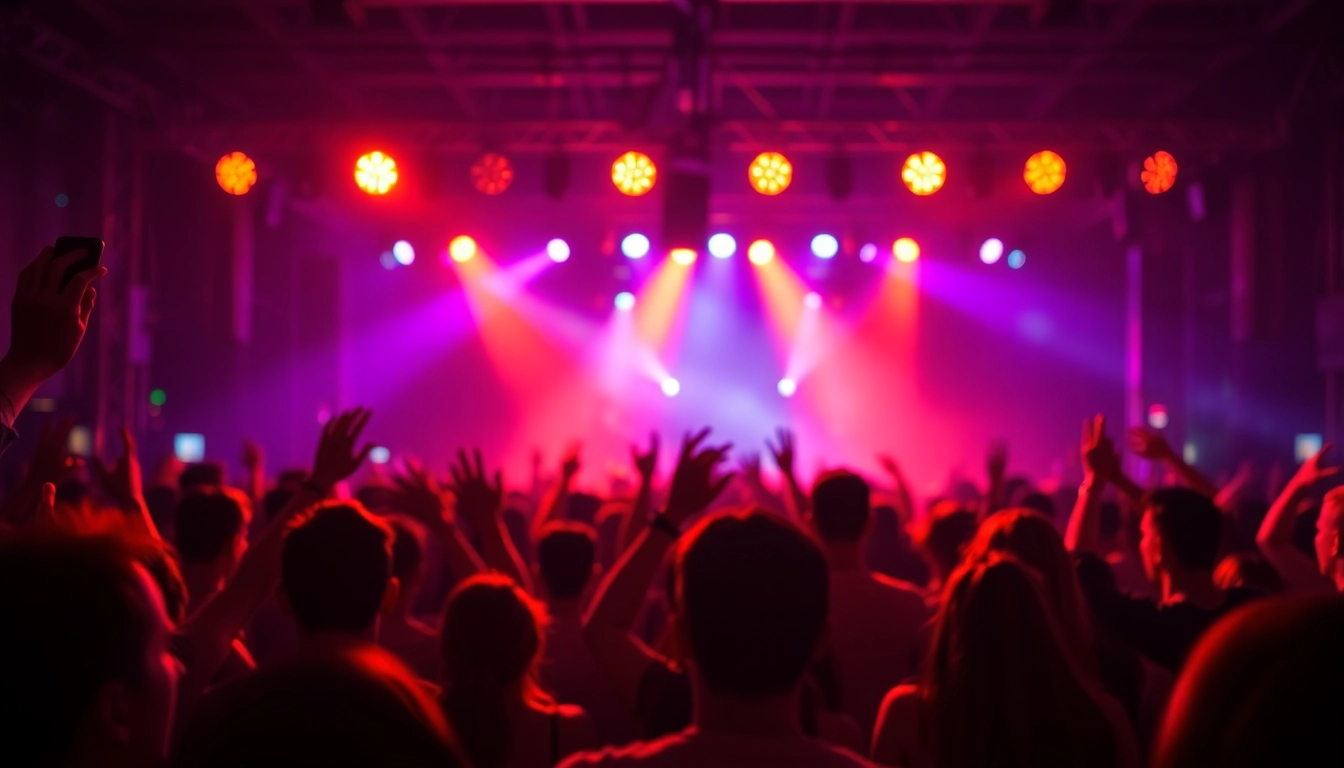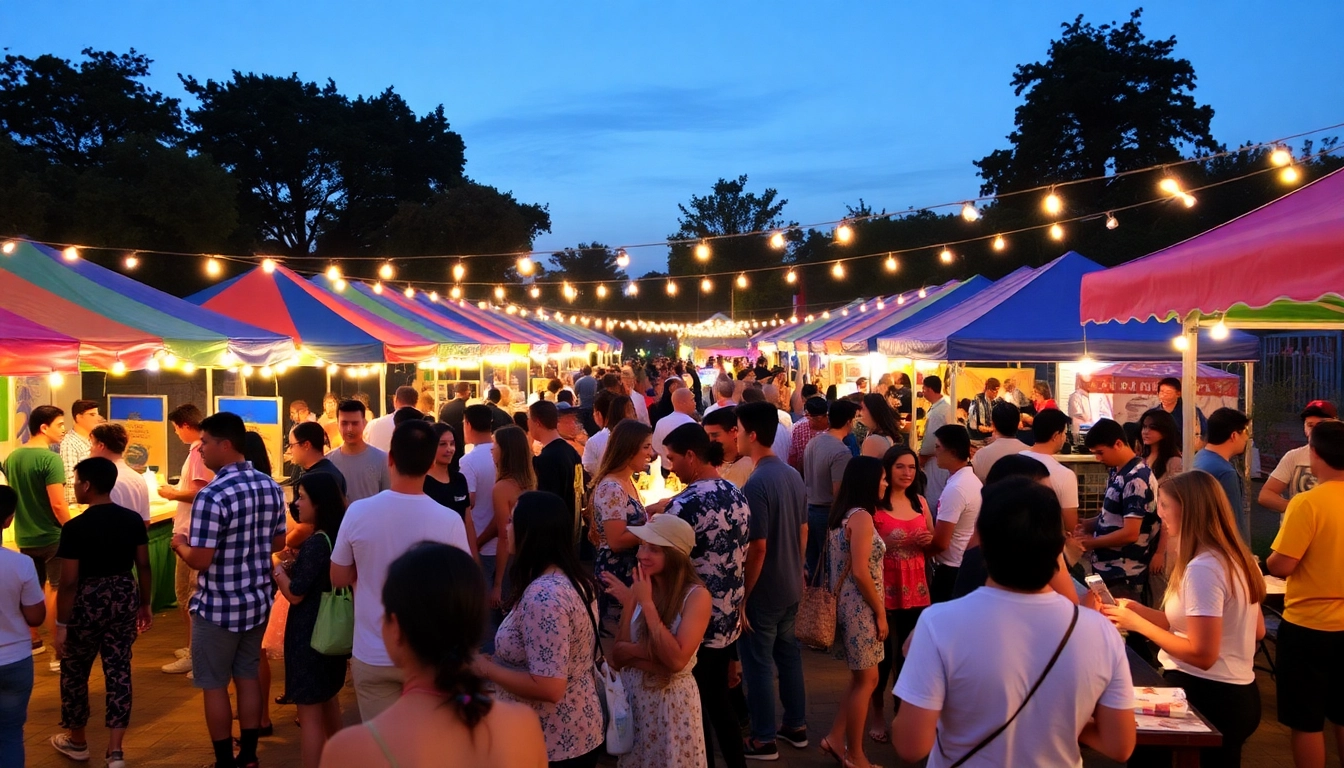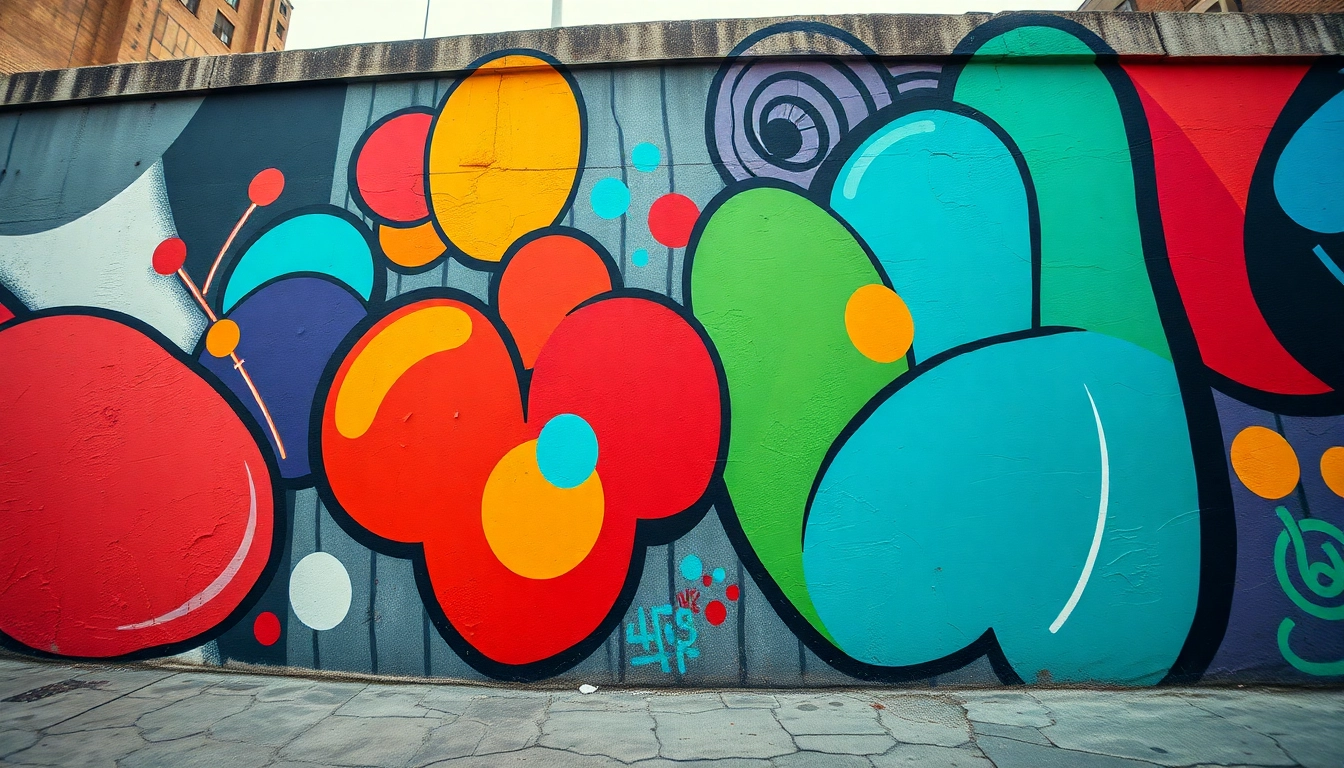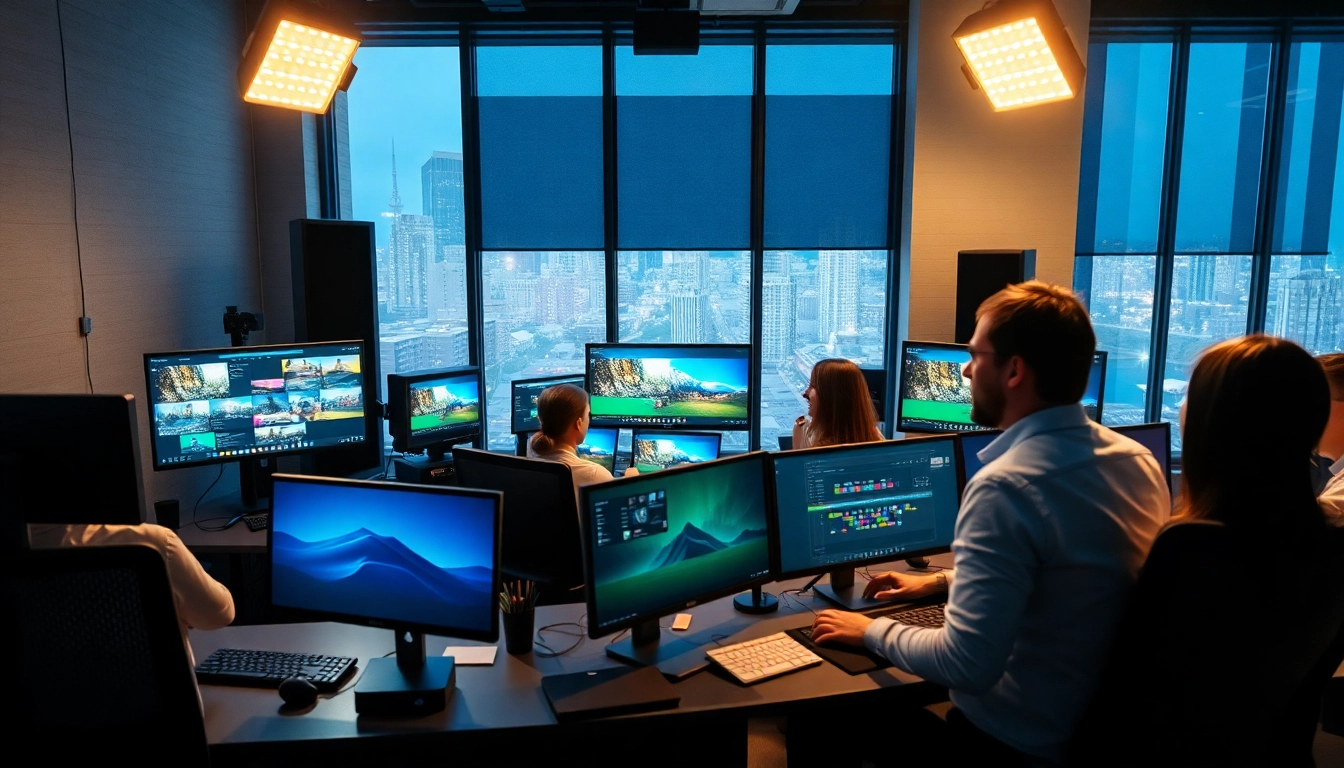Understanding the Passion of Live Music Fans
Attending live music events is more than just a routine activity for fans; it’s an emotion-laden experience that taps into their very essence. The energy, the atmosphere, and the sense of connection to others is unparalleled, making this niche a vibrant part of the larger cultural fabric. For anyone involved in the live music scene, understanding live music fans is crucial to creating experiences that resonate deeply with them. This article will delve into the multifaceted world of live music fans—from their emotional connections to the music they love, to the challenges they encounter, and the technology that enhances their experience. Together, we can explore how to engage this passionate community effectively.
The Emotional Connection to Live Music
At the heart of every live music experience lies an emotional connection that transcends mere entertainment. From the moment the lights dim, the anticipation in the crowd builds, ebbs, and flows with each note played. Many fans describe a sense of euphoria during performances, highlighted by moments of collective joy with strangers that often feel like family. This emotional bond has several components:
- Shared Experiences: Live shows create a sense of community among fans, connecting them through shared tastes and passions.
- Escapism: For many, attending a concert is a form of escapism from everyday life. The immersive nature of live music allows fans to forget their worries and connect with their innermost feelings.
- Connection to Artistry: Engaging with artists in a live setting provides fans a deeper understanding of the music. Witnessing raw talent and creativity firsthand enhances their appreciation for the art.
Understanding this emotional connection is vital for event organizers, artists, and venues. By creating an environment that nurtures and amplifies these feelings, they can foster loyalty among fans.
Demographics of Live Music Fans
The landscape of live music fans is rich and diverse, encompassing various age groups, backgrounds, and musical tastes. Research highlights a few notable trends:
- Age Range: While traditionally associated with younger audiences, data shows an increasing number of fans aged 30-50 attending live concerts, often drawn by nostalgia or complex musical tastes.
- Gender Distribution: The demographics may vary by genre. For example, pop and rock concerts tend to skew female, while electronic and heavier genres often attract a more male-dominant audience.
- Geographic Considerations: Urban areas typically see higher attendance rates due to easier access to venues and a more diverse musical offering. However, regional festivals are gaining traction across rural and suburban landscapes.
Understanding these demographics allows promoters and venues to tailor their marketing strategies efficiently. It fosters a conducive environment for curating lineups that truly resonate with their audiences.
Challenges Faced by Live Music Fans
Despite their passion, live music fans often face hurdles that can detract from their experiences. These challenges can range from logistical to emotional:
- Accessibility: Many venues may not cater to fans with physical disabilities, outlining a crucial area for improvement in the industry.
- High Ticket Prices: The rising costs of tickets, exacerbated by service fees, can leave fans feeling alienated from the music they love.
- Competition for Attention: With the growing number of events and festivals, fans may struggle to choose which concerts or tours to attend, potentially leading to decision fatigue.
Addressing these challenges is essential for organizations in the live music scene. By enhancing accessibility, considering pricing strategies, and refining marketing approaches, they can help improve the overall experience for fans.
Creating Memorable Experiences for Live Music Fans
Creating unforgettable experiences for live music fans goes beyond simply delivering a performance; it requires a strategic approach to venue setup, lineup curation, and ongoing audience engagement.
Importance of Venue Setup and Atmosphere
The venue plays a critical role in the overall experience of live music fans. Elements such as acoustics, lighting, and crowd flow create the immersive environment that fans crave. Designing such experiences includes:
- Layout Optimization: A clear layout that facilitates easy movement and safe access ensures fans can navigate comfortably.
- Sound Quality: High-quality sound systems and trained sound engineers provide an audio experience that enhances enjoyment.
- Ambiance Creation: The right mix of lighting and decor can elevate the mood and encourage interaction before, during, and after the show.
Event organizers should collaborate closely with venues to design spaces that prioritize sound quality and fan comfort, ensuring that the experience aligns with the emotional connection fans seek.
Curating Unique Music Lineups
One of the most effective ways to engage and excite live music fans is through carefully curated lineups. Unique and diverse offerings can enhance audience satisfaction and encourage repeat attendance. Strategies for curating lineups include:
- Diversity in Genre: Including a variety of music styles caters to fans of different tastes, making events more inclusive.
- Emerging Artists: Showcasing up-and-coming acts provides fans with fresh experiences and helps build community support for new talent.
- Themed Events: Curated events based around particular themes or concepts can further engage specific fan communities.
By investing in intelligent lineup curation, promoters can ensure that live music fans receive a unique and fulfilling experience.
Utilizing Fan Feedback for Improvement
Engaging with fans after an event is pivotal for gathering insights on their experiences. Creating an avenue for fan feedback allows promoters to identify areas for improvement and tailor future events. Effective methods include:
- Surveys: Distributing surveys post-event can provide specific data on attendee satisfaction and suggestions for improvements.
- Social Media Engagement: Actively responding to fan feedback on platforms where they engage most can foster community and encourage ongoing dialogue.
- Focus Groups: Hosting small groups of fans to discuss their experiences can unearth rich qualitative data.
Incorporating fan feedback not only improves experiences but also builds a sense of ownership and community among fans.
Engaging Live Music Fans Through Technology
Modern technology plays an integral role in shaping how fans engage with live music. From social media interactions to innovative app development, leveraging technology can deeply enhance audience experiences.
Social Media Interaction Strategies
Social media is a powerful tool for connecting live music fans before, during, and after performances. Organizations can maximize their engagement by employing strategic tactics such as:
- Real-Time Updates: Use platforms like Instagram and Twitter to provide live updates during events, making fans feel connected even when they aren’t physically present.
- Interactive Content: Engaging fans with polls, questions, and challenges can make the audience feel more connected to the event.
- User-Generated Content: Encouraging fans to share their experiences via hashtags can create a communal narrative around events.
Employing a robust social media strategy can strengthen community ties and foster loyalty among fans.
Mobile Apps for Enhanced Fan Engagement
The rise of mobile applications tailored specifically for live music fans has revolutionized engagement. These apps can provide personalized experiences through features like:
- Ticketing Solutions: Streamlined ticket purchasing and management make attending events easier and more efficient.
- Exclusive Content: Offering behind-the-scenes insights and previews can deepen fan engagement and foster anticipation.
- Networking Features: Facilitating communication among fans can enhance friendship and community-building opportunities.
Developing a user-friendly and feature-rich app can enhance the overall fan experience, making live music events even more enticing.
Virtual Reality Concerts: A New Frontier
Virtual reality (VR) technology is transforming the live music experience. By enabling fans to attend concerts from the comfort of their homes, VR presents opportunities for wider engagement:
- Accessibility: VR can cater to fans unable to travel for live shows, broadening the audience base significantly.
- Immersive Experiences: VR concerts can simulate the atmosphere of a live event, providing audiences with an interactive experience that traditional streams cannot match.
- Global Reach: Artists can reach international audiences without the limitations associated with physical travel.
As the technology develops, integrating VR into the live music scene presents endless possibilities for engagement, creativity, and audience connection.
Building Long-Term Loyalty Among Live Music Fans
Long-term fan loyalty is vital for ensuring the sustainability of the live music industry. By cultivating a sense of community and providing consistent value, promoters and artists can create devoted followings.
Loyalty Programs Tailored for the Music Community
Implementing loyalty programs specifically designed for live music fans can deepen their connection to the music and the community. Effective strategies encompass:
- Rewards for Attendance: Offering rewards points for concert attendance encourages regular attendance and will motivate fans to keep coming back.
- Exclusive Merchandise: Providing access to limited edition merchandise or behind-the-scenes opportunities creates additional value for loyal fans.
- Member-Only Events: Exclusive access to private shows or meet-and-greets can significantly enhance a fan’s engagement and investment in the music community.
A well-structured loyalty program can turn casual attendees into lifelong fans.
Exclusive Content and Early Access for Fans
Providing exclusive content and access fosters a deeper connection with live music fans. Artists can implement these strategies:
- Behind-the-Scenes Footage: Sharing exclusive glimpses into rehearsals or the songwriting process creates intimacy.
- Pre-Sale Opportunities: Allowing loyal fans early access to tickets can enhance their connection to the artist and the live performance experience.
- Specialty Tracks and Releases: For die-hard fans, access to unreleased versions or special tracks can be a powerful incentive to stay engaged.
Creating avenues for exclusive content cultivates loyalty and helps fans feel like they are part of a special community.
Creating a Sense of Community Among Fans
Building a sense of community is essential for sustaining fan loyalty. Many fans seek solidarity and connection through shared interests. Strategies to foster this community include:
- Online Forums and Groups: Providing platforms for fans to discuss their favorite music creates a virtual space for connection.
- Fan Events: Hosting collaborative events beyond concerts can strengthen relationships within the community.
- Encouraging Fan Initiatives: Allowing fans to host their events under the brand can empower community-building efforts.
Engaging fans in a concerted community-building approach can create lasting bonds that last well beyond the concert itself.
Measuring Success with Live Music Fans
To assess the effectiveness of strategies aimed at engaging live music fans, tracking key performance indicators (KPIs) is essential. Analyzing fan behavior ensures that the actions taken are effective and align with fans’ expectations.
Key Performance Indicators (KPIs) to Track
When gauging the success of events and engagement strategies, certain KPIs can offer critical insights:
- Attendance Rates: Monitoring attendance gives a clear picture of the events’ draw and effectiveness in attracting fans.
- Fan Engagement Levels: Analyzing social media interactions and app usage metrics can reveal fans’ levels of interest.
- Post-Event Surveys: Gathering post-event feedback will offer valuable insights into what worked and opportunities for improvement.
By tracking these metrics, organizations can continuously adapt their approaches to better serve their audience, leading to sustained growth in engagement.
Analyzing Fan Behavior for Better Strategies
Understanding how fans behave concerning their music consumption and event attendance is integral for refining marketing and engagement efforts:
- Behavioral Data Analysis: Gathering data on purchase patterns, attendance frequency, and even social media activity helps identify trends among fans.
- Segmentation: Dividing the fan base into different segments (e.g., casual fans vs. hardcore supporters) allows for tailored marketing strategies.
- Utilizing Predictive Analytics: Employing analytic methods can help anticipate fan behavior, informing decisions about future event planning and marketing.
With an informed understanding of fan behavior, organizers can create targeted initiatives that resonate with various fan segments.
Case Studies of Successful Engagement Programs
Numerous organizations have implemented successful fan engagement strategies yielding impressive results. Examining these case studies can reveal actionable insights:
- Live Nation’s VIP Experience: By offering exclusive VIP packages, Live Nation has successfully enhanced the live concert experience, increasing revenue and fan satisfaction.
- Music Festivals’ Interactive Apps: Festivals like Coachella and Lollapalooza have effectively used mobile apps to enhance attendee engagement, providing real-time updates, maps, and exclusive content.
- Artist Fan Clubs: Musicians like Taylor Swift have harnessed fan clubs efficiently, providing exclusive access to content and strengthening the artist-fan relationship.
These case studies highlight the significance of innovative approaches and how they can successfully meet the needs and desires of live music fans.



